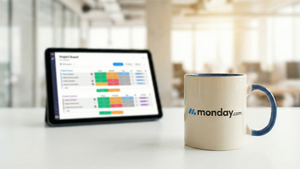
SPONSORED CONTENT -- (StatePoint) It’s no secret that saving money is hard. Millions of Americans are living paycheck to paycheck and four out of 10 have less than $400 in savings.
Similar to healthy eating, exercising or getting enough sleep, saving money works best when you make it a habit. Here’s how to prioritize saving money so that it becomes second nature:
1. Set a specific, realistic goal. Get very clear on what’s most important to you, whether that’s a rainy day fund to cover unexpected expenses, a family vacation, a house or retirement. Having a target amount for your savings and seeing your progress can keep you motivated.
2. Start small. Think of one or two actions you can take today to help you reach your goal. For example, cut back on expenses like eating out and put that money toward a weekly or monthly savings target. Accomplishing bite-sized goals can result in major progress over time.
3. Make it automatic. The more a habit is automatic, the more likely you’ll be to stick with it. Set up your direct deposit to put a portion of every paycheck into your savings account — before you have the chance to spend it. There are many online banking and digital tools that make it simple to set up automatic transfers to make consistent deposits. There are also mobile apps that will round up your purchases to the nearest dollar and deliver the change into a savings fund.
4. Reward yourself. While building a healthy habit is its own reward, it doesn’t hurt to thank yourself for being consistent. With support from the Wells Fargo Foundation, the nonprofit SaverLife launched a free mobile app that can help you build a habit of savings through fun, daily challenges, cash rewards and tips from financial coaches. The prize offerings change regularly, which can help you stay motivated and on track to hit your money goals. In the first six months of joining SaverLife, members typically more than double their savings rates and 58% deposit at least $500 into their savings accounts. To get started, download the free SaverLife app from the iOS or Android app store.
5. Get empowered. Knowledge is power, and fortunately, free online resources abound that can give you the financial literacy you need to meet your savings goals and gain insights into your money decisions. For example, Our Money Matters is a free financial wellness hub also supported by the Wells Fargo Foundation that offers personalized financial wellness tools and educational content to help you with things like budgeting, ways to pay for college, building good credit and savings for goals. To sign up for free, visit our-money-matters.org.
“The key is to get started and build on each small success,” says Bonnie Wallace, head of Financial Health Philanthropy at Wells Fargo. “We’re committed to supporting programs that connect people with resources that can help them boost their savings and build greater financial security over time.”
Photo Credit: (c) Zinkevych / iStock via Getty Images Plus




